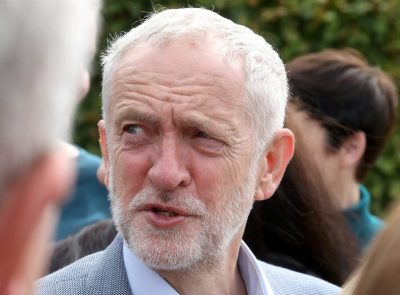Russia-Ukraine War: Johnson Is Usually Wrong. Corbyn Right. Guess Who We’re Listening To?
We need a serious debate about war objectives. That can only happen with less of Johnson's sabre-rattling and more of Corbyn's calls for caution

All Global Research articles can be read in 51 languages by activating the Translate Website button below the author’s name.
To receive Global Research’s Daily Newsletter (selected articles), click here.
Follow us on Instagram and Twitter and subscribe to our Telegram Channel. Feel free to repost and share widely Global Research articles.
***
It is just over three years since the then Labour Party leader, Jeremy Corbyn, and the then British prime minister, Boris Johnson, went head to head in one of the most important general elections in British history.
Last weekend, Johnson and Corbyn found themselves in confrontation once again.
Johnson, now out of office, but still able to rely on his powerful following in the mainstream media, has emerged as the loudest and most exuberant British voice pressing for an escalation of the war in Ukraine.
Meanwhile, the former Labour leader makes the case for caution. Corbyn told Global’s Lewis Goodall:
“The priority has to be an intervention to bring about a ceasefire. Listen, if Ukraine and Russia can talk about a grain deal then it’s obviously possible they can talk. And what happens if there is no ceasefire? Many, many thousands more are going to be killed.”
Corbyn’s latest intervention has, so far as I can tell, been entirely ignored by the British mainstream media and political establishment.
No wonder. They are without exception gung-ho for an escalation of British (and western) involvement on the Ukraine battlefield.
This became clear when British Defence Secretary Ben Wallace announced last month what he called the “most significant package of combat power to date, to accelerate Ukrainian success”.
The announcement of a squadron of Challenger 2 tanks was welcomed by almost everyone, including current Labour leader, Keir Starmer, the Liberal Democrats and the Scottish National Party.
In so far as Wallace was criticised, it was for not doing more.
An unofficial envoy
I have never seen such unanimity on the floor of the House of Commons – not even when just 13 MPs (including Jeremy Corbyn) out of 650 opposed Britain’s role in the calamitous Libyan intervention of March 2011.
Today, support for Britain’s involvement is universal – with Prime Minister Rishi Sunak allowing former prime minister Johnson to play the role of unofficial envoy. Last month Johnson met international finance chiefs at Davos, where he pressed the case for sending tanks to Ukraine.
He then travelled to Kyiv to meet President Volodymyr Zelensky and argued for a major escalation of the war. “This is the moment to double down,” he declared, “and to give the Ukrainians all the tools they need to finish the job.”
On returning to Britain, he went further and demanded that Ukraine should be invited to join Nato. Such a move would automatically mean the West would be at war with Russia. Not just that, Johnson urged that fighter jets should be sent to Ukraine.
From Kyiv, he went to the US, where he amplified the case for war and at one point seemed to be arguing that Ukraine should join the European Union.
Everywhere he went, Johnson was met with huge and largely favourable publicity. Sunak arranged for the trip to Kyiv to be paid for by the British taxpayer in a sign that Johnson is playing the role of unofficial envoy.
Foreign wars
The omerta surrounding Corbyn’s recent warnings against escalation can partly be explained by the fact he is not, like Johnson, a former prime minister. Furthermore, Corbyn has been turned into a non-person in Keir Starmer’s Labour Party.
But he has an annoying habit of being right about foreign wars.

